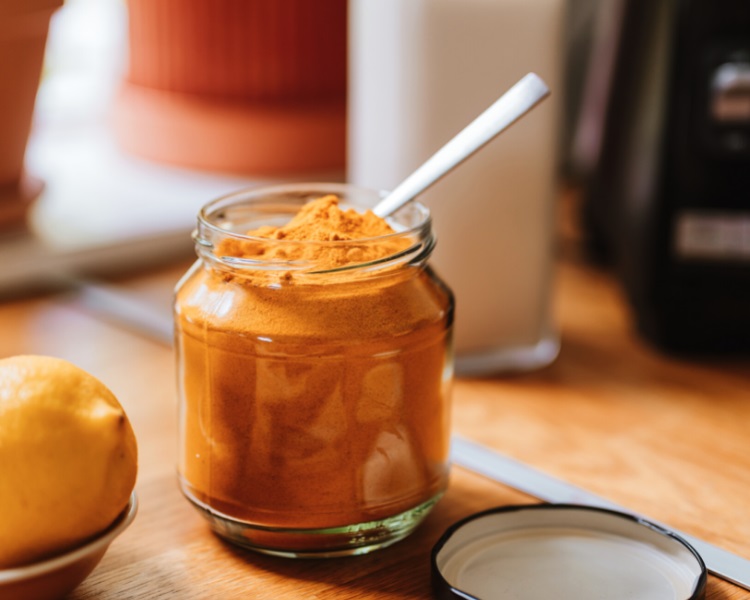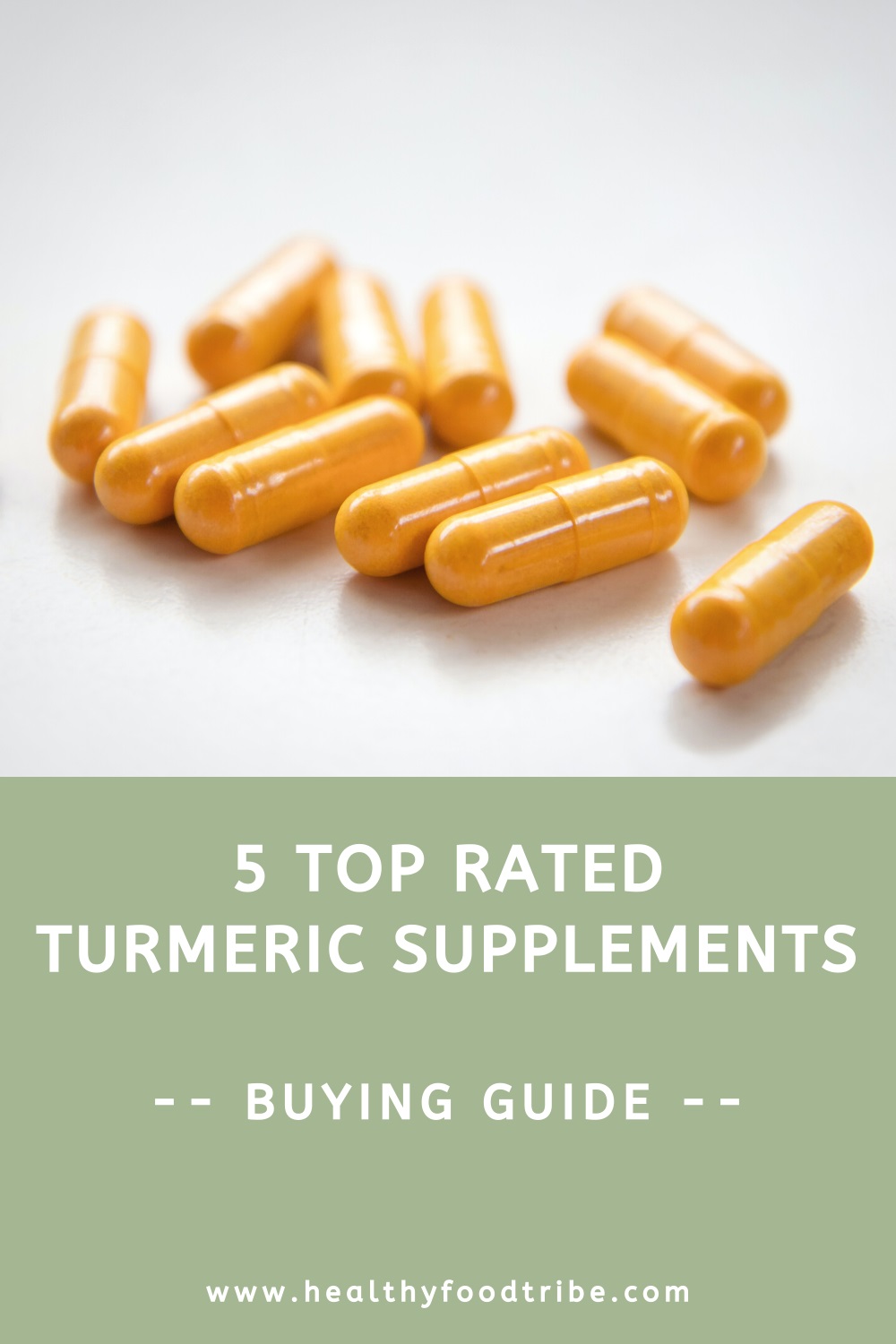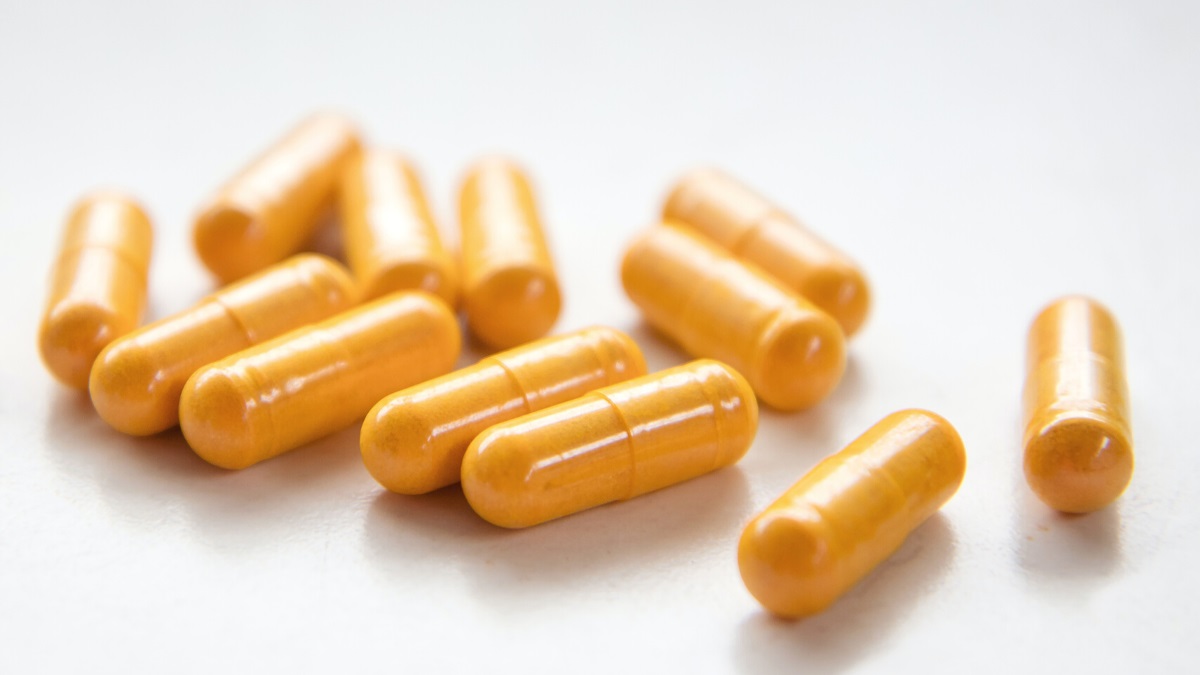I may earn a small commission from purchases made through product links on this website at no extra cost to you. As an Amazon Associate I earn from qualifying purchases.
Last updated: March 25, 2024
Turmeric has long been a popular spice in Indian cuisine for various reasons. Curcumin is the active compound in turmeric that is thought to have medicinal properties and other benefits.
Are turmeric supplements worth it, or should we instead use natural turmeric root powder in our meals?
I have reviewed the best turmeric supplements available on the market and have selected my top five, based on brand reputation, curcumin content, reviews, pricing, ingredients, and more.
Top 5 Turmeric Supplements:
Top 5 Turmeric Supplements
Here is my top 5 best turmeric supplements with curcumin as the key component.
1. NatureWise Curcumin Capsules
This little NatureWise curcumin bottle contains 180 vegetarian capsules that each contains 2250mg of organic curcumin complex with turmeric root and curcumin extract standardized to 95% curcuminoids.
As with all supplements listed, NatureWise contains Bioperine black pepper extract to enhance the absorption of curcumin. Each capsule also contains 140mg organic ginger root for extra antioxidant properties, and it also improves absorption. So, each tablet is 1650mg, consisting of 2250mg of curcumin and turmeric, 140mg of organic ginger, and 10mg of black pepper extract.
It’s worth mentioning that NatureWise packages its products using recycled materials and renewable energy, and they obtain their ingredients from sustainable and certified organic sources whenever possible. They are also a generous donor and supporter of PINA, the Permaculture Institute of North America. This particular product is made in the USA and is third-party tested.
2. Schwartz Bioresearch Turmeric Curcumin Capsules
The turmeric supplement produced by Schwartz Bioresearch is a 100% natural, non-GMO product without any fillers, binders, or preservatives. It is also free of gluten, soy, milk, egg, wheat, and peanuts.
The bottle contains 90 vegetarian capsules, each containing 1350mg turmeric root, 150mg turmeric extract, and 10mg black pepper extract (Bioperine). Schwartz Bioresearch recommends taking three capsules daily, meaning one bottle would last one month.
I think two capsules per day are more than enough, eventually bringing it down to only one capsule daily. The 150mg turmeric extract with 95% standardized curcuminoids is pretty generous compared to many other supplements. This Schwartz turmeric curcumin supplement is made in the USA and is third-party tested.
3. Doctor Recommended Turmeric Curcumin Capsules
This turmeric supplement by Doctor Recommended provides 180 veggie capsules, each with a 750mg blend of turmeric root and turmeric extract with curcumin.
Like the NatureWise product, the label does not clearly specify how much of this blend is turmeric root and how much is curcumin extract.
Doctor Recommended is a US-based nutrition company that produces its supplements in FDA-registered, GMP-certified facilities.
4. NutriFlair Premium Turmeric Capsules
Based in the US, NutriFlair is a supplement store with an extensive range of products and a large customer base.
This turmeric curcumin supplement contains 120 veggie capsules, each with 1200mg turmeric root, 100mg turmeric extract, and 10mg black pepper extract. It’s a pretty standard composition in the market of curcumin supplements.
NutriFlair claims to only use natural, non-GMO ingredients for its supplements, without any additives or preservatives. NutriFlair also offers a 100% satisfaction guarantee, with a full refund in case of dissatisfaction.
5. Qunol Turmeric Curcumin with Ginger
Qunol Turmeric Curcumin with Ginger packs a high dose of 2250mg of 95% curcuminoids, well above many other similar products.
The addition of 150mg organic ginger and 15mg black pepper extract not only spices things up but also boosts absorption.
This blend is great for soothing my tired joints after a long day or intense workout. It’s rooted in tradition, with a mix of botanicals known for their comforting properties.
What Is Turmeric?
Turmeric is a spice (some call it a herb) that is part of the ginger family. It comes in two different colors: white and yellow turmeric. There is, in fact, a black turmeric as well, but that type is not as well-known.
When people refer to turmeric, they typically mean the yellow version, which is the most common type of turmeric. White turmeric is also quite rare and is generally replaced by ginger.
Indian Saffron
Native to India and often referred to as “Indian saffron”, yellow turmeric has brown/yellow skin and orange/yellow flesh. It smells like a mix of ginger and orange, with a peppery and bitter flavor.
Turmeric is mostly known in powder form, created by boiling, drying, and grinding the root. Besides its essential role in Indian cuisine, turmeric is also thought to have medicinal properties.
Read my saffron guide to learn more about this intriguing spice.
Curcumin
The yellow color is caused by the high concentration of curcumin, the most beneficial compound in turmeric. Curcumin has been used as a traditional herbal medicine for many centuries, particularly in India and China.
The positive effects of turmeric and curcumin on our health have made this spice more popular in Western medicine as well. Turmeric and curcumin supplements are on the rise, as more people learn about their potential benefits.

There have also been results of studies suggesting that curcumin can be effective in treating depression symptoms as it helps to increase serotonin and dopamine levels (known as “feel good” neurotransmitters) in the brain. Curcumin also helps with faster muscle recovery and decreases joint pain.
Turmeric contains around 3-5% curcumin. So, to make the most of this healthy compound, you would need to consume quite a lot of turmeric. This is why people often prefer to use curcumin supplements.
How Do Turmeric Supplements Work?
Deciphering turmeric supplements and comparing them can be a challenge, and it’s hard to make sense of it all. So, let’s go through some of the common terminology and claims used with these supplements.
Standardized to 95% Curcuminoids
This is the fun part of turmeric supplements. Curcuminoids are active compounds in turmeric that include curcumin but also demethoxycurcumin and bisdemethoxycurcumin (such complicated words!).
It’s easy to think that curcuminoids and curcumin are the same, but they are not. It is true, though, that curcumin is the primary component of curcuminoids; around 75%.
Most turmeric supplements claim to have turmeric extract “standardized to 95% curcuminoids“. Unless otherwise stated, this means that around 75% of this 95% is actually curcumin, the compound we usually buy turmeric supplements for.
More importantly, this turmeric extract component (with curcumin), typically only forms 10% of the supplement capsule. The other 90% is turmeric root (powder).
Therefore, when the packaging says “with 95% curcuminoids”, this doesn’t mean that the capsules are 95% curcuminoids. Technically, The label isn’t incorrect; it’s just a bit confusing or perhaps even misleading.
Black Pepper Extract and Bioperine
There is another issue with curcumin that many people aren’t aware of. Curcumin has a very low bio-availability, meaning it doesn’t get very well absorbed and leaves the body before it can actually do something with it.
This essentially means that, no matter how beneficial the compound may be, the human body isn’t able to do much good with it.
The solution for this is black pepper. Black pepper extract (also known as piperine) has been found to be very effective in absorbing curcumin. This extract is a manufactured product called Bioperine, which is, in fact, a registered trademark.
Supplement manufacturers are therefore adding a little bit of Bioperine to make the supplement much more useful. Bioperine is typically standardized to a minimum of 95% piperine.
Bioperine is not only used in turmeric supplements. It has been successfully used for over two decades to enhance the bio-availability of many other compounds and nutrients through increased absorption.
Do You Need a Turmeric Supplement?
I’m usually quite hesitant regarding supplements as I believe that maintaining a healthy and balanced diet is always the best option.
However, turmeric is not a common spice in a typical Western diet. This is where turmeric supplements can add value because many people don’t consume turmeric, or other spices, in their regular diet.
When choosing the best turmeric supplement, make sure you go with a reputable brand. Always read the label and look carefully at the ingredients to see how much of each active ingredient is used.
It’s also wise to do a bit of research into where the supplement has been manufactured and under what conditions.







Very informative article. Not only have I been using curcumin for many years, but many family members have also tried it and continued using it.
Very helpful article, I love turmeric. Anyone interested in herbs and spices should definitely check out the book Everyday Roots. It explains how to replace harmful chemical products in your life with organic ones. It has completely changed my life and how I feel everyday.